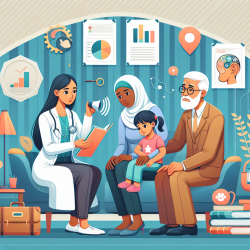The digital age has revolutionized how we communicate, and the healthcare sector is no exception. With the advent of instant messaging applications like WhatsApp, clinicians have found new ways to share patient information swiftly and efficiently. However, this convenience comes with its own set of challenges, particularly concerning record keeping and data storage. A recent scoping review titled "WhatsApp in Clinical Practice—The Challenges of Record Keeping and Storage" sheds light on these issues and offers insights that can help practitioners improve their skills in managing electronic communications.
The Growing Use of WhatsApp in Healthcare
The use of WhatsApp in clinical settings has surged, particularly during the COVID-19 pandemic. It offers a quick and easy way for clinicians to communicate, seek second opinions, and share patient information. However, despite its popularity, WhatsApp is not fully compliant with data protection regulations such as GDPR or HIPAA. This raises significant concerns about the privacy and security of patient information.
Challenges in Record Keeping and Data Storage
The scoping review highlights a critical gap in the healthcare sector: the lack of clear guidelines for record keeping and data storage when using WhatsApp. Many clinicians are aware of the need to comply with statutory reporting requirements but often lack awareness or concern about existing privacy legislation. This has led to problematic practices and workarounds that increase legal, regulatory, and ethical concerns.
- Lack of Clear Guidelines: Without standardized guidelines, clinicians often resort to storing sensitive information on their mobile phones, which poses risks if the device is lost or stolen.
- Data Retention Issues: The retention of original messages for audit purposes is often overlooked, leading to potential gaps in medical records.
- Security Concerns: While WhatsApp offers end-to-end encryption, its use remains non-compliant with major data protection regulations due to potential vulnerabilities before encryption or after decryption.
Proposed Solutions
The study suggests several approaches to mitigate these challenges:
- Institutional Policies: Healthcare institutions should develop IT governance policies that include standard operating procedures for using instant messaging apps like WhatsApp.
- Secure Data Transfer: Clinicians should transfer WhatsApp chats to secure electronic medical records (EMR) systems or print them for physical storage while ensuring compliance with security protocols.
- Anonymization Practices: While anonymization can protect patient identity, it should be balanced against the need for identifiable records in clinical settings.
The Need for Further Research
The review underscores the need for further research into developing comprehensive guidelines that align with evolving data protection laws. Clinicians are encouraged to stay informed about updates to software versions and security protocols to ensure compliance with legal and ethical standards.
A Call to Action
The findings from this study serve as a call to action for healthcare practitioners to enhance their record-keeping practices when using instant messaging applications. By adopting secure communication strategies and advocating for clear guidelines, clinicians can safeguard patient information while leveraging modern technology's benefits.
WhatsApp in Clinical Practice—The Challenges of Record Keeping and Storage. A Scoping Review










